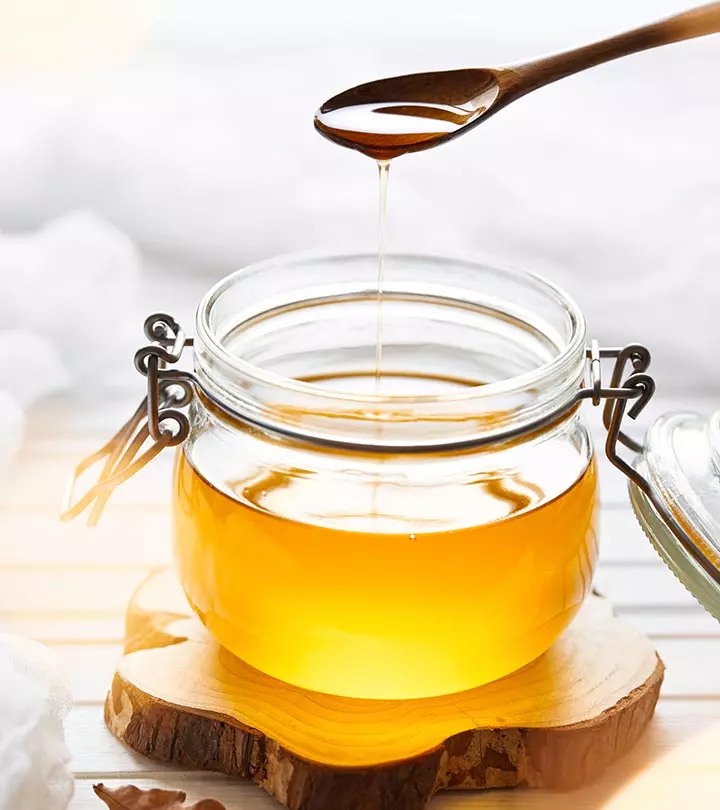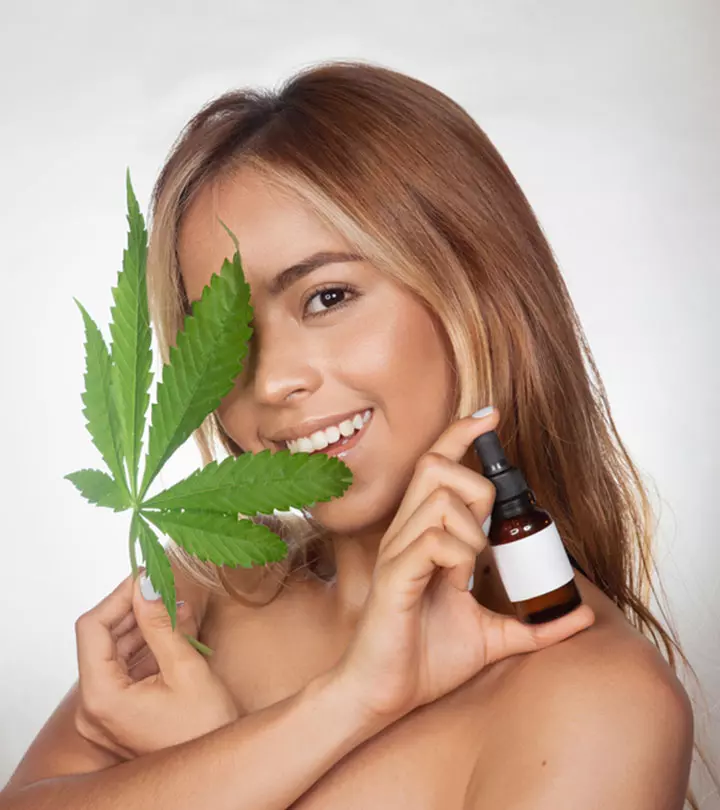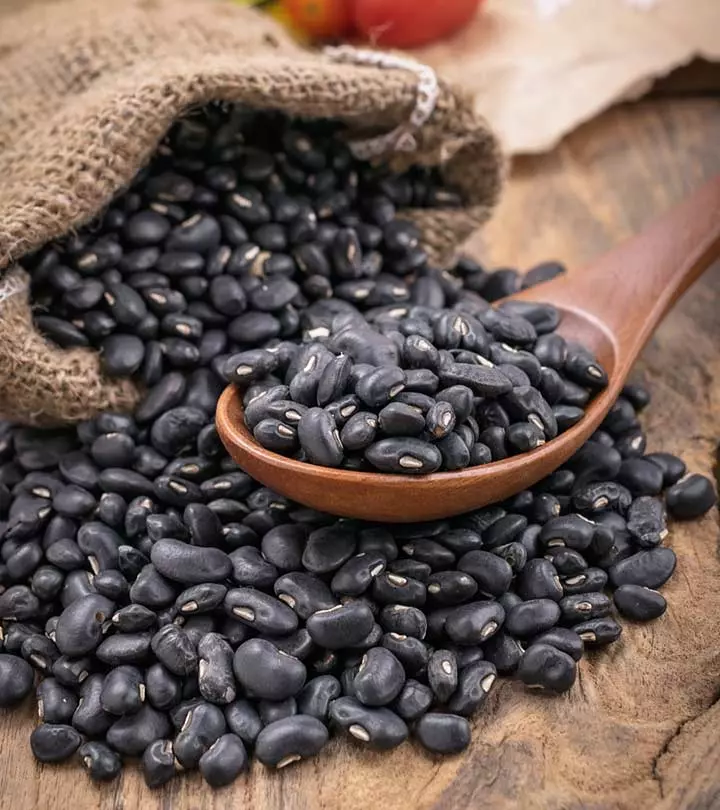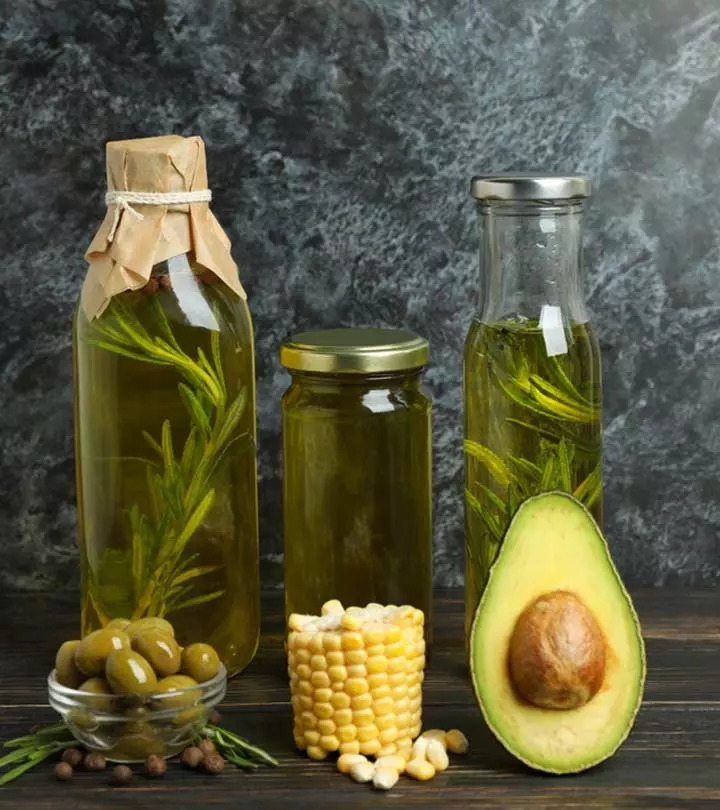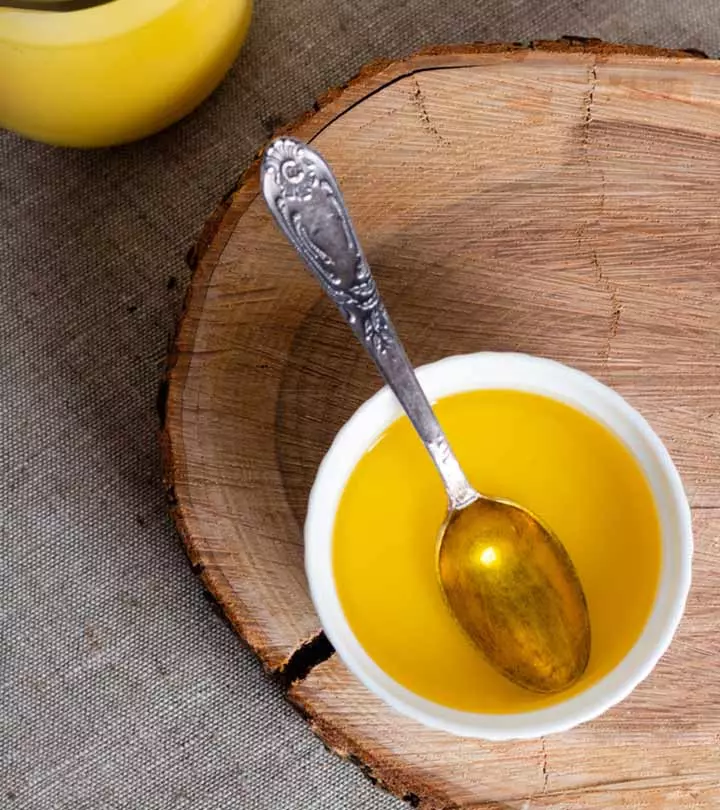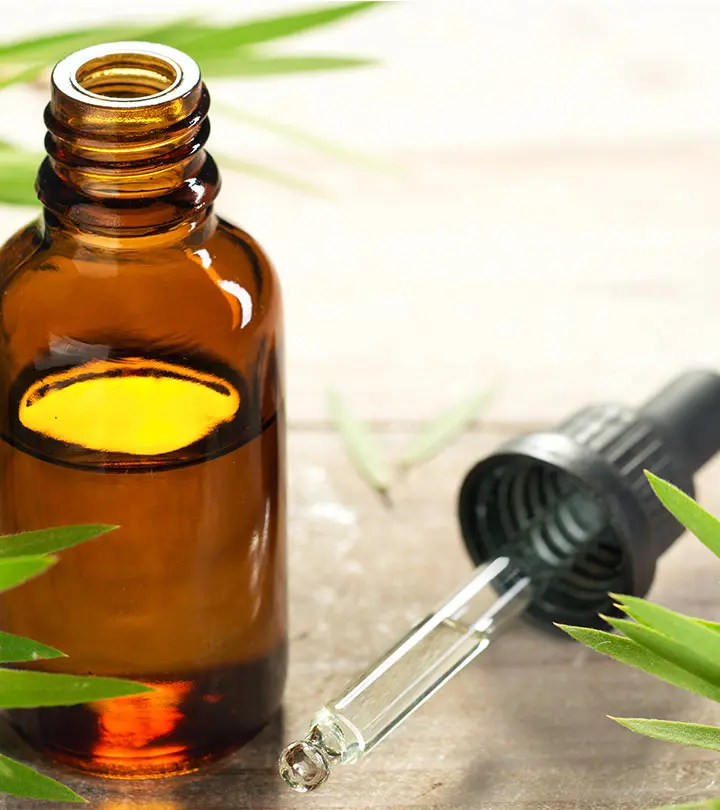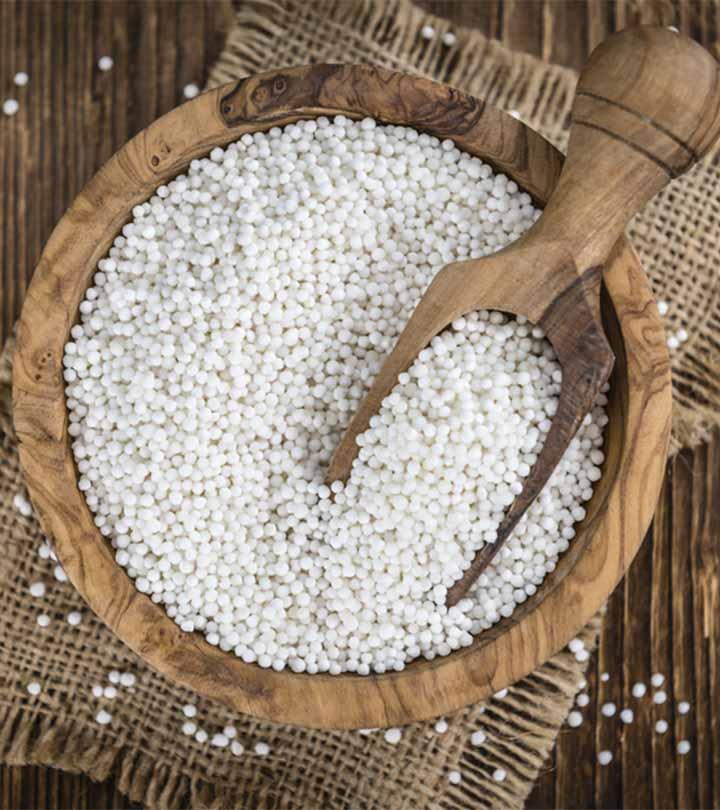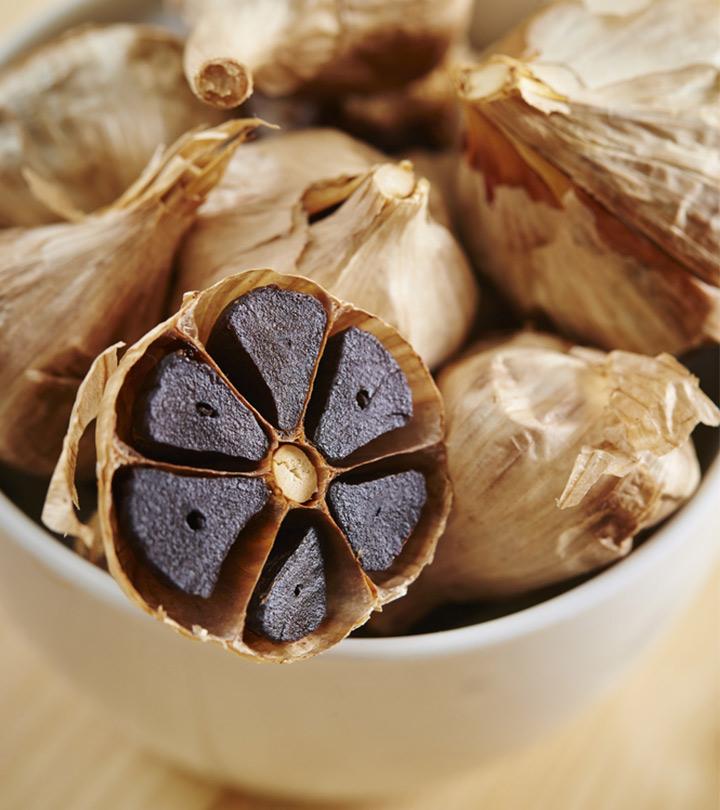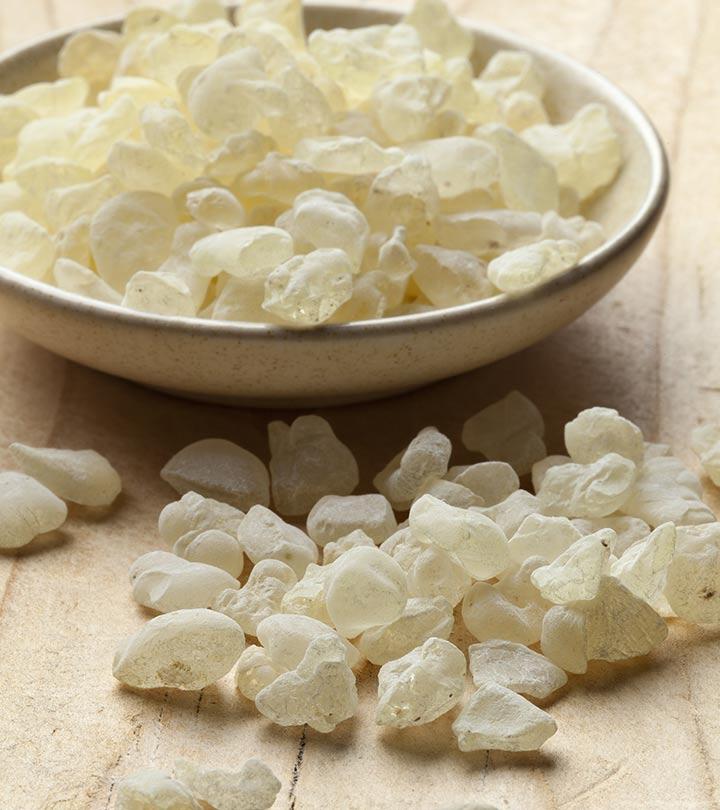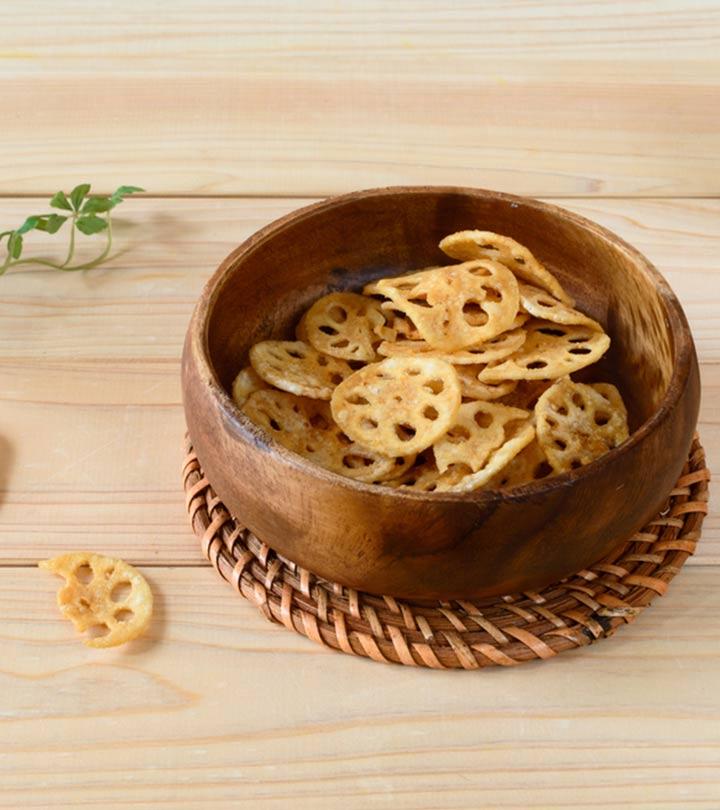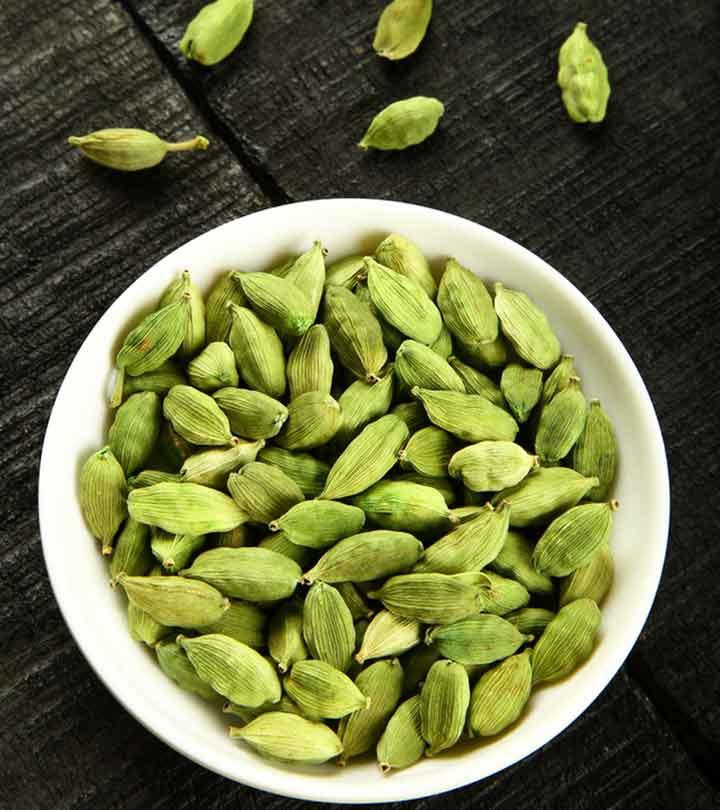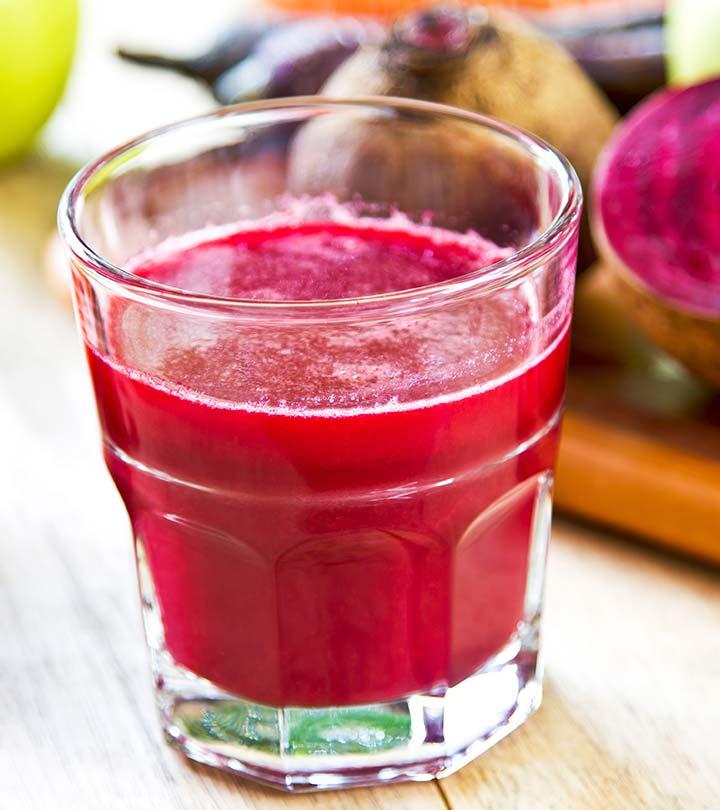Is Truffle Oil Really Healthy? 8 Significant Benefits + Preparation Tips
This gourmet ingredient can have multiple beneficial effects on your overall health.
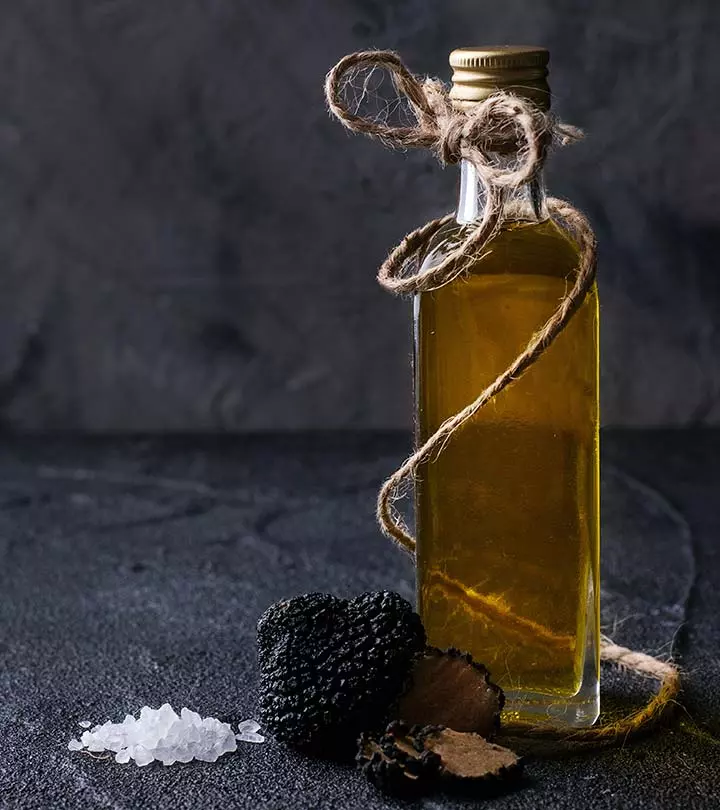
Image: Shutterstock
Truffle oil benefits extend beyond its exquisite taste. For many years, gourmet restaurants and high-end dining room menus have offered this chef’s delight. You can add the oil to just about anything to enhance its flavor. It can improve your life in several ways. Truffle oil boosts heart and brain health and helps manage weight and diabetes. This article discusses the importance of truffle oil, its benefits, recommended dosage, nutritional profile, and possible side effects. Take a look.
 Know Your Ingredient: Truffle Oil
Know Your Ingredient: Truffle OilWhat Is It?
A type of finishing oil extracted from an edible fungus known as a truffle.
What Are Its Benefits?
When consumed, it can fight free radical cell damage, improve heart and brain health, reduce cancer risks, and aid diabetes management. Topical application can prevent premature skin aging.
Who Can Use It?
Truffle oil can be consumed by all and even during pregnancy. It is also safe for all skin types when topically applied (patch test recommended).
How Often?
Can be consumed daily in small amounts (1 tablespoon). Can be included in one’s daily skincare routine.
Caution
Excess consumption may cause allergic reactions, digestive problems, or lower blood glucose and blood pressure levels.
In This Article
What Is Truffle Oil?
Truffle oil comes from truffles (obviously), which are a type of fungi that grow underground, typically near the roots of a tree. The oil is usually drizzled over dishes like pasta, pizza, and even vegetables to enhance their taste – and is used in ways similar to that of olive oil.
There are different types of truffles. These include:
- Black truffles, which are pitch black and predominantly found in France.
- White truffles, which look like white marbles and are found in parts of Italy.
- Burgundy truffles, which are a type of black truffle with coffee-colored interiors.
- Garlic truffles, which are another type of black truffle with a garlic scent and smooth skin.
Black and white truffle oils are used interchangeably. But why? What’s the big deal about them?
How Is Truffle Oil Healthy?
This has got to do with its nutrition. Though we will cover more of this later, for now, let’s look at some of the major nutrients in the oil that make it what it is.
Most truffle oils found at the supermarket are made by mixing certain aromatic compounds with an oil base that mimics the flavor of real truffles. Which means the nutrients in the oil are, more or less, the same as the oil base used. Most often, though, truffle oil is made with an olive oil base.
Olive oil is rich in vitamins E and K. It also contains oleic acid, which is great for the heart and even helps fight inflammation and cancer, according to studies (1). The oil also contains monounsaturated fats, which are the healthy fats with benefits. All of these make truffle oil quite a healthy addition to your diet. And then, there’s more.
 Fun Fact
Fun FactWhat Are The Benefits Of Truffle Oil?
1. Truffle Oil Improves Heart Health
Truffle oil is rich in essential nutrients and polyphenols that may contribute to cardiovascular health, potentially preventing chronic heart diseases. These antioxidants can help protect the body’s cells from damage caused by free radicals. This nutrient-rich oil can assist in maintaining optimal blood pressure and cholesterol levels, fighting against inflammation, thereby promoting overall heart health.
The olive oil that is used as a base is also great for the heart. Studies have linked its intake to a reduced risk of cardiovascular disease (2).
Truffle oil is also rich in polyphenols that possess antioxidant properties, thereby preventing oxidative damage and cell damage. These polyphenols have also shown to prevent chronic heart conditions like coronary heart disease (3). They can also lower levels of high cholesterol and blood pressure, thereby preventing heart disease.
2. Fights Inflammation
This can again be attributed to olive oil. The oil contains oleocanthal, a phenolic compound with anti-inflammatory properties (4).
It also exhibits anti-inflammatory effects that prevent ailments like atherosclerosisi It is the accumulation of lipids and cholesterol on the arterial wall obstructing normal blood flow. (5).
3. Helps Fight Cancer
Olive oil, the primary component of truffle oil, was shown to fight cancer by halting the growth of cancer cells (6). Several other studies show how this oil can suppress cancer growth. This could be possible due to the antioxidants in olive oil. They fight free radicals that can otherwise cause cancer.
4. Can Aid Diabetes Treatment
Truffle oil has been found to regulate insulin levels, and this can help lower excess blood sugar levels. And the olive oil (yet again) in truffle oil can increase insulin sensitivity, thereby helping normalize the blood sugar levels (7). Olive oil also keeps the platelets from clumping together, thereby preventing the formation of clots in the blood vessels – this eventually reduces insulin levels and controls glucose levels.
5. Can Help With Weight Loss
Replacing those processed vegetable oils (for dressing food dishes) with truffle oil can help you reach your weight loss goals. The oil doesn’t contain bad fats that add inches to your waistline. Studies have also shown that long-term intake of olive oil is linked to a reduction in body weight (8).
Also, the dietary monounsaturated fats in truffle oil have an added advantage – they take a long time to digest and increase satiety. This results in reduced hunger and healthy weight reduction over time. The healthy fats can also reduce the levels of ghrelin, which is a hormone responsible for triggering hunger (9).
6. Improves Brain Function
Intake of healthy fats undoubtedly improves brain function, as per studies. This is especially true with olive oil (and truffle oil) that reduces brain inflammation and triggers a process that researchers term as autophagy – where the cells break down and flush out the intracellular waste (10). This also helps boost brain health and wellness.
Other research also states how diets replete with healthy fats work better in improving brain health than a low-fat diet (11).
7. Delays Skin Aging
The vitamin E in the oil deserves the credit here. There are hundreds of studies that speak how vitamin E can reduce inflammation and fight issues like acne, psoriasisi A skin disorder that causes rashes with itchy, scaly patches and commonly affects the scalp, trunk, knees, and elbows. , dermatitisi A blanket word used to describe a skin irritation that typically involves dryness, itchiness, and rashes. , and even premature aging. The oil, when applied topically, may also fight the ill effects of UV rays (12).
Truffle oil is also rich in antioxidants, which can prevent oxidative damage to the skin and delay signs of aging. This is one reason why truffle is an active ingredient in numerous serums and cosmetics and other skin care products.
8. May Help Protect The Liver
Research on the hepatoprotective effects (ability to prevent liver damage) of truffles is limited but encouraging. It suggests that truffle extracts can help combat oxidative stress in the liver, potentially protecting it from damage. This is attributed to their antioxidant properties owing to the presence of vitamins A, C, and phenolic compounds. A study tested the liver-protecting effects of truffle extract in rats exposed to a liver-damaging substance, carbon tetrachloride (CCl4). It found that the extract significantly improved liver function and almost completely reversed the harmful effects of the liver toxin (13).
While these findings are promising, further research, particularly clinical trials on humans, is necessary to establish a concrete link between truffles and liver health.
These are the benefits truffle oil can offer you. But these are not all. The oil also has several other uses that you can check out.
What Are The Other Ways Truffle Oil Can Be Used?
Truffle works wonders as a finishing oil, which is why it can be used in several ways to amp up the flavor of your dishes and add more flavor to many of your culinary delicacies.
- You can drizzle truffle oil over potatoes or other curries to give them a unique aroma.
- Drizzle the oil over your evening pasta.
- You might also want to drizzle a bit of the oil over your egg omelets.
- Try the same with popcorn or fries.
- Use the oil as a salad dressing.
You can be as creative as you want to be when it comes to using truffle oil. And all that for the wonderful nutrients it has.
What Is The Nutritional Profile Of Truffle Oil?
Most truffle oils available on the market are made using olive oil as a base. And this makes them high in monounsaturated fats. Truffle oil is also rich in vitamins E and K. Another important compound is oleic acid, which plays a crucial role in fighting inflammation and cancer and heart ailments.
A tablespoon of olive oil (119 calories) contains 13.5 grams of fat, 1.9 milligrams of vitamin E (10% of RDA), and 8.1 micrograms of vitamin K (10% of RDA).
All good. But is there a way to prepare truffle oil right at home?
How To Prepare Truffle Oil At Home
Real truffle oil (the one prepared naturally) is far more nutritious than what you find in the market. And preparing it is quite easy.
What You Need
- 1 teaspoon of fresh truffle shavings
- 1 cup of extra virgin olive oil
- 1 pint jar (sterilized and airtight)
Directions
- Firstly, cut the truffles into small pieces.
- Add the olive oil to a pan.
- Add the cut truffles to the pan and mix well.
- Transfer this mixture to the jar and store it in a cool and dry place for several hours.
- Shake the jar once daily. Do it for a week.
- You can use it post a week.
 Quick Tip
Quick TipThat brings us to an important question. You saw the types of truffles (white and black, primarily). But, of the two, which oil is better?
White Truffle Oil Vs. Black Truffle Oil
The two types of truffles vary in terms of taste, appearance, and pricing, although they are similar in terms of nutritional content.
White truffles are predominantly found in Italy. They appear like marbles and have white flesh with a delicate flavor. White truffles are priced at a whopping $5,000 per pound (starting from $3,000), and that is, yes, way too pricey. Which is why authentic truffle oil is one extremely expensive option.
Black truffles are found in southern Europe, including France and Spain. They have a more robust flavor and are chocolate brown. And a pound of black truffles costs about $1,520.
Both the truffle oils are used interchangeably, and which of the two is better is usually left to the discretion of the user. But there’s a tip that can help you – white truffle oil goes well with meats (like fish and rabbit meat) with a delicate flavor, while the black variant goes well with heartier foods like sauces and beef.
Oh, by the way, dark chocolate truffle has NOTHING to do with truffles or truffle oil. At least not most of the time.
We saw what all is good and glorious about truffle oil. But you must also know the darker side of the oil.
What Are The Side Effects Of Truffle Oil?
- Gastrointestinal Distress
Certain individuals might experience digestive distress after taking truffle oil. Reducing or even stopping its intake can improve the symptoms.
- Might Lower Blood Pressure Or Blood Sugar Way Too Much
If you are already taking medications for high blood pressure or high blood sugar, you might want to reconsider taking truffle oil as it might lower the levels way too much.
- Skin Irritation
Applying the oil can cause skin irritation in some people. Hence, do a patch test before using it. And if you have sensitive skin, avoid using the oil.
Indulging in the exotic flavor of truffle oil not only elevates your culinary experience but also offers a range of health benefits. From improving heart health to regulating blood sugar levels, truffle oil is a superfood in its own right. Check out the infographic below to uncover its hidden benefits for your health. Illustration: StyleCraze Design Team
The benefits of truffle oil are numerous. It promotes weight management and cardiovascular health, combats inflammation, reduces cancer risk, and aids in diabetes treatment. It also helps in weight loss, improves brain function, and delays the signs of aging. You can use it as an integral ingredient in your local cuisine, drizzle truffle oil on your dishes, or use it as a salad dressing. You can also prepare truffle oil at home with simple ingredients. However, the oil may trigger gastrointestinal distress and cause hypoglycemia and hypotension in some individuals. Hence, caution is advised. Nevertheless, having it in moderation can offer you the benefits.
Frequently Asked Questions
How long does truffle oil last?
The oil can last for 4 to 6 months in the pantry and about 8 months in the fridge.
Where to buy truffle oil?
You can purchase the oil from your nearest supermarket or procure it online.
What is a good substitute for truffle oil?
The ideal substitute for truffle oil could be porcini mushroom-infused oil (as it is something with a mushroom inside), which works great for salads, scrambled eggs, and other dishes.
How can you tell if truffle oil is real?
Looking at the label and the list of ingredients can help you differentiate fake truffle oil from the authentic variant. Terms like “truffle aroma” or “truffle flavor” are frequently used to conceal the addition of other artificial ingredients. The label may additionally contain the apparent term “artificially flavored.” If “truffles” aren’t clearly listed in the ingredients, you’re looking at a fake oil.
Can vegans consume truffle oil?
Real truffle oil is, in fact, vegan. However, since animals are used in the harvesting process, the procedure might not meet the vegan criteria. Additionally, some oils may have other constituents that are not vegan-friendly (such as tiny amounts of dairy or even fish). Hence, some vegans have reservations about truffle oil.
Can you fry with truffle oil?
No, you should not use truffle oil as a cooking oil; instead, use it as a finishing oil. It should be used as a seasoning after the food has been prepared.
Key Takeaways
- Truffle oil helps protect against damage and disease-causing free radicals.
- Regular usage of truffle oil may delay skin aging and improve skin health.
- It helps reduce bad cholesterol, controls blood sugar levels, and promotes smooth cardiovascular functioning and digestion.
- It prevents inflammation and relieves pain and swelling in the body.
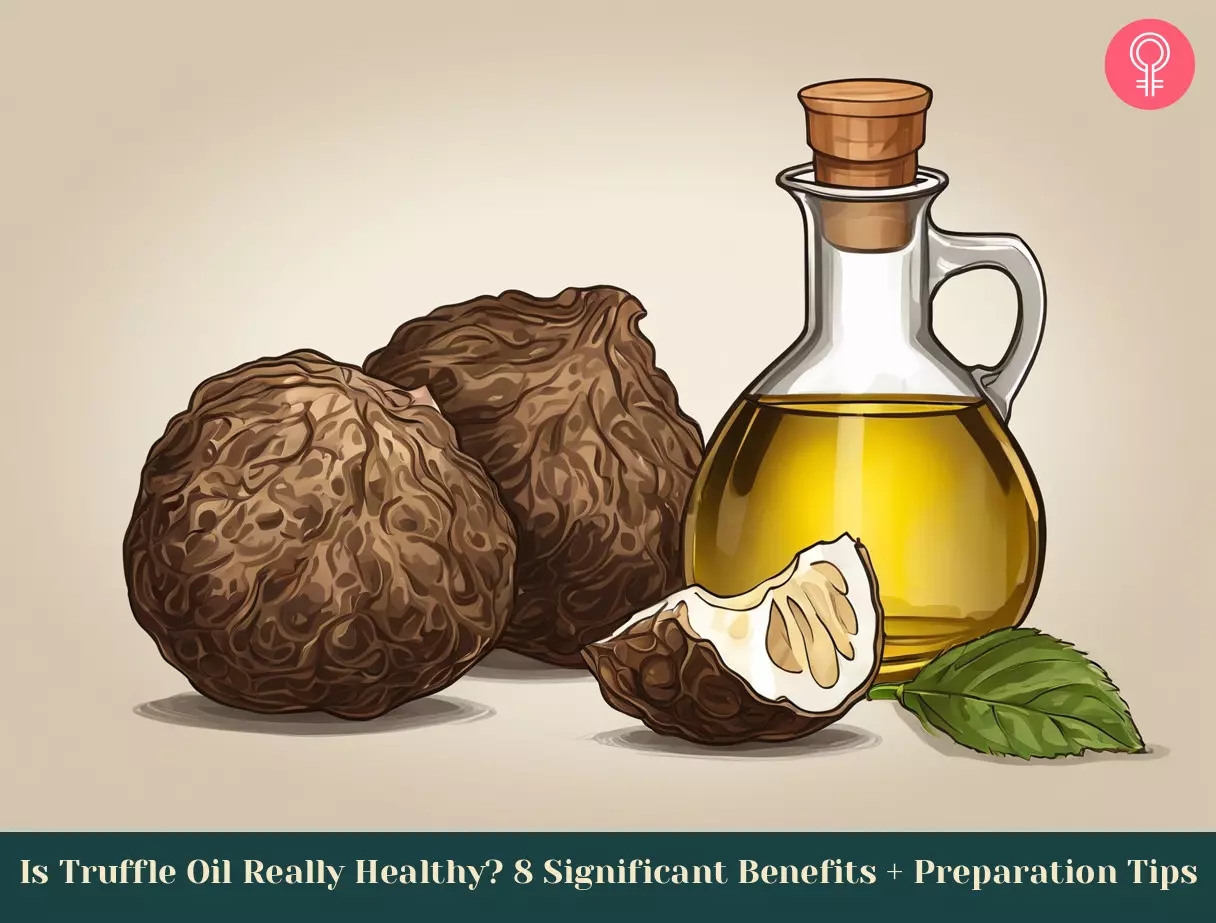
Image: Stable Diffusion/StyleCraze Design Team
References
Articles on StyleCraze are backed by verified information from peer-reviewed and academic research papers, reputed organizations, research institutions, and medical associations to ensure accuracy and relevance. Read our editorial policy to learn more.
- “An overview of the modulatory…”. US National Library of Medicine.
- “Olive oil intake and risk of…”. US National Library of Medicine.
- “The inflammation theory of disease”. US National Library of Medicine.
- “Molecular mechanisms of inflammation…”. US National Library of Medicine.
- “Olive oil-related anti-inflammatory…”. US National Library of Medicine.
- “Dietary olive oil and corn oil…”. US National Library of Medicine.
- “The potential role of olive oil…”. US National Library of Medicine.
- “A 3 years follow-up of a…”. US National Library of Medicine.
- “Effects of meals high in carbohydrate…”. US National Library of Medicine.
- “Extra-virgin olive oil ameliorates…” Wiley Online Library.
- “Mediterranean diet improves cognition…”. US National Library of Medicine.
- “Protective effect of topically…”. US National Library of Medicine.
- “Hepatoprotective Activity of…” Pakistan Journal of Nutrition.
Read full bio of Heather M. Duquette-Wolf
Read full bio of Arshiya Syeda
Read full bio of Sindhu Koganti









